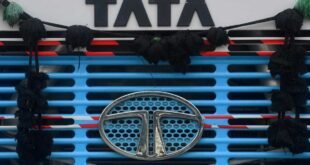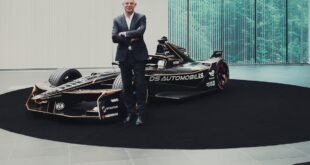Chinese Officials Address Unhealthy Competition in the Electric Vehicle Sector
In recent months, the Chinese electric vehicle (EV) industry has experienced a surge in activity, driven by both government support and aggressive market strategies. However, this rapid expansion has led to concerns about unsustainable competition, prompting officials to take action.
The Chinese government has long been a strong advocate for the EV sector, pouring significant state funds into research, development, and production of battery-powered vehicles. This support is part of a broader strategy to reduce pollution and position China as a global leader in green technology. Despite these efforts, the industry is now facing challenges that threaten its long-term stability.
One of the most pressing issues is the intense price war among automakers. Many companies are flooding the domestic market with low-cost vehicles, offering substantial discounts and trade-in schemes to attract customers. While these tactics have boosted sales in the short term, they have also created financial strain on smaller startups, some of which have gone bankrupt. The situation has raised questions about whether the industry is moving toward a more sustainable model or spiraling into chaos.
Domestic criticism has grown over the past few months, particularly around the concept of “involution” — a term used to describe a competitive race that leads to diminishing returns. In this context, it refers to the growing number of firms trying to outdo each other, often at the expense of innovation and quality. This internal competition is seen as counterproductive, with many arguing that it undermines the potential for meaningful progress in the sector.
In response to these concerns, top officials in Beijing convened a meeting chaired by Premier Li Qiang. According to state news agency Xinhua, the meeting emphasized the need for tighter price monitoring and improved long-term regulation of the new energy vehicle (NEV) market. The goal is to curb what officials describe as “irrational competition” and promote healthier growth.
The discussion highlighted the importance of strengthening industry self-discipline and encouraging companies to enhance their competitiveness through technological innovation. Officials stressed that the focus should shift from short-term gains to long-term sustainability. By fostering a more balanced environment, the government aims to ensure that the EV industry can continue to thrive without falling into destructive cycles of oversupply and undercutting.
The China Association of Automobile Manufacturers, a key industry group, has also voiced concerns about the current state of the market. In May, the association warned that “disorderly” competition could lead to harmful rivalries that ultimately hurt overall growth. This sentiment aligns with the broader message coming from Beijing, reinforcing the need for regulatory intervention.
Analyst Bill Bishop, writing in his Sinocism newsletter, noted that the language used in the recent government statement suggests a possible move toward price controls on electric vehicles. He interpreted the tone as a clear signal that the government is prepared to step in and address the “irrational competition” within the sector.
This development marks a turning point for the EV industry in China. While the initial push for growth was driven by aggressive marketing and investment, the current focus is shifting toward stability and strategic development. The challenge now lies in balancing the need for competition with the necessity of maintaining a healthy, sustainable market. If done correctly, this approach could help the EV sector reach new heights while avoiding the pitfalls of unchecked rivalry.
 Info Malang Raya Its All About World News
Info Malang Raya Its All About World News



